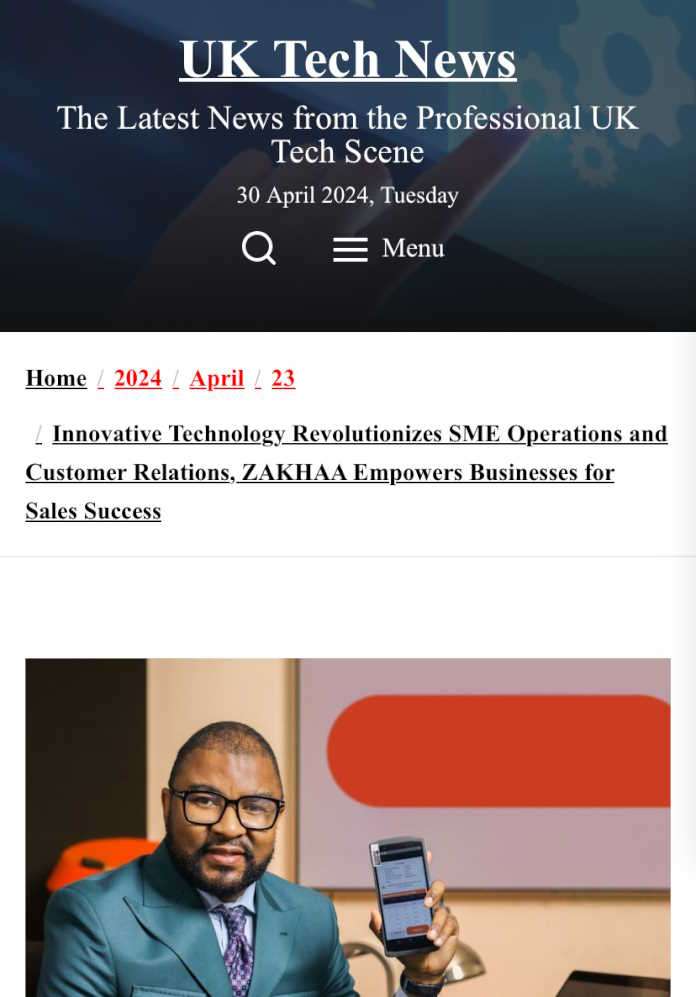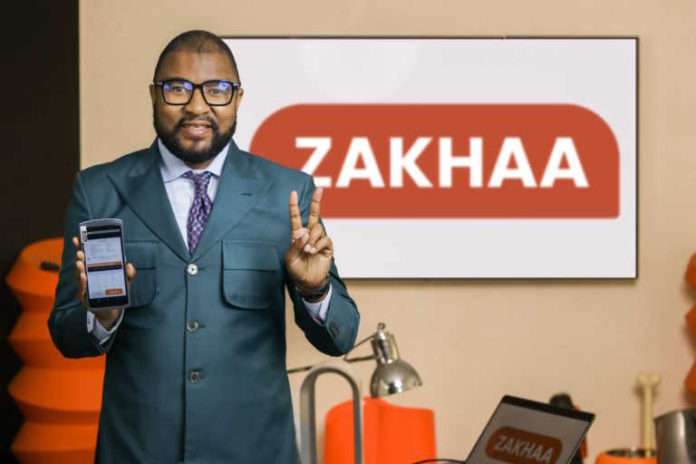Teboho Twala who recently got featured on UK Tech News for his latest fintech innovation is bringing digital inclusion to lower SMEs in rural areas across South Africa where local business owners have no access to banking systems to track their payments and monies owed.

Lower SMEs have no access to technology and fintech solutions to run their businesses effectively which is mainly why most township economies are not booming or creating local wealth and employment for the local communities.
Recognizing this gap as a critical barrier and wanting to create sustainability for SMEs Mr. Twala envisioned a solution that could transform the landscape of small business operations.
Thus, Zakhaa was born, with a dedicated mission to empower SMEs, enabling them to conduct business more efficiently and effectively. By providing tools and resources tailored to overcome the complexities of managing customer debt, Zakhaa stands as a testament to innovation driven by genuine market needs, aiming to foster a more robust environment for small businesses to thrive and expand.
Teboho Twala’s professional background started in engineering as a chemical engineering graduate at the University of Johannesburg, an honours degree in business administration from Milpark business school and is currently completing his thesis for Masters in Entrepreneurship and New Venture creation at Wits Business School in Park town.
SME customers would ask for services or products and promise to pay part of or all the money due by end of the month which they never do and there is no collateral that a small business owner can rely on. This lack of trust and payment records costing small business owners to lose money because they lack a tracking system that monitors their incoming payments and customers end up not paying. Teboho Twala saw a need to formalise this relationship between small business owners and customers through a seamlessly cost effective way for all parties involved.
Zakhaa, a tech development operates as a software that is loaded onto a device built to facilitate the processes it has been built for. This fintech development works a mobile payment machine and device and unlike other payments systems it works for everybody even low or no income groups unlike other payments systems which only work for customers who already have credit cards so this makes business easy for small business owners in order for them to administrate and track their payments.
“We understand the unique needs of Small businesses, and our solutions are designed to help you manage your finances more effectively. Our services include: financial inclusivity for unbanked businesses an lower SMEs, helping small business owners run their own banking operations without having to join any big banks and pay additional bank charges” says Teboho.
Through this app, he hopes to help small businesses resolve their cash flow challenges. We believe that at the back of us digitalising and enabling small businesses to have credible trading track records, they will be able to receive short-term funding in the form of loans from traditional lenders. This will help small businesses with much needed cash flow for both day to day running and their growth and subsequently, job creation.
“Zakhaa differs in a sense that there is nothing like it in the market for small business at the moment. No mobile payment machine/device currently does what we do. Even with similar application and business model, they are mainly for online payments, for customers already having credit cards and are not administered by small businesses. In our case, the power is given to small businesses. It’s the decision and prerogative of a small business owner to enter into a flexible payment arrangement with a customer, we are providing seem-less fintech to enable this to happen” says Teboho.
Teboho hopes to expand Zakhaa services across South Africa and also expand their service offering and digital inclusion in rural areas, previously disadvantaged areas such as townships and to markets beyond South Africa. Some of the testimonials they have received during the testing phase was a handful of merchants who gave them great feedback. They have been on the road engaging clients and customers on the streets about how the app is helping their day to day business.
In May they will be launching a beta program with 100 merchants to test the other features followed by a mass launch around fourth quarter of the year which will be a national campaign to reach small businesses owners in areas where they lack digital inclusion.
A great example of how Zakhaa works is if your car breaks down in the middle of the month, you need a mechanic to fix it, they say it will cost you R2000 but you don’t have R2000 you have R500 you can pay now and you will pay the remaining balance of R1500 over three months. The mechanic can capture this arrangement on our card payment machine, first processing the R500 deposit using the card payment capability on the machine and then the deferred payment is captured separately on the same machine.
Zakhaa cyber security team has put together stringent security measures using cyber security features that protect the information of their users, Both merchants and their customers. For instance, they have a verification process that links to home affairs and banks to ensure that no personal use of other people’s information to make purchases. They have also subscribed to Popi act which governs personal information sharing. Their security systems are designed to protect merchandiser information with the consent of their clients.
Zakhaa affords users the chance to make a purchase and pay for it when they can afford it. Having realised that small businesses lose billions of rands yearly in unpaid deferred payments for goods and services. People always ask for services or products and promise to pay part of or all the money due by the end of the month, which they never do and there is no collateral that a small business owner can rely on. Their earnings are based purely on trust with no records. This is how he saw a need to formalise this relationship but do it seamlessly in a cost-effective way for all parties involved.












